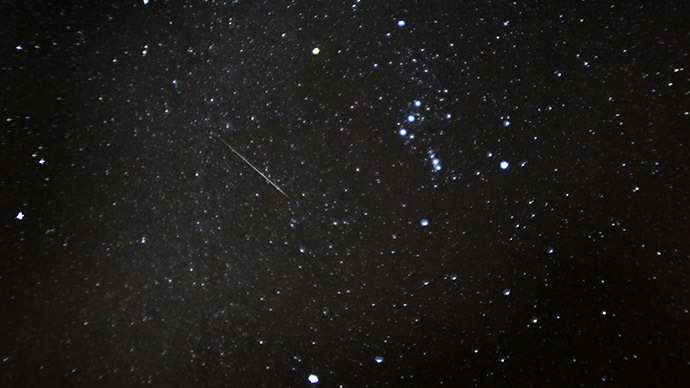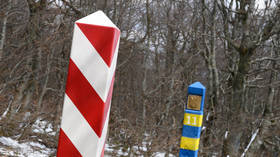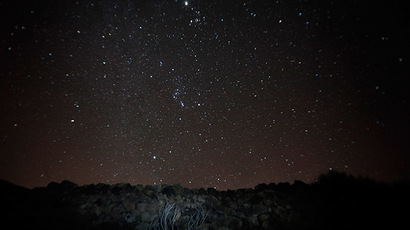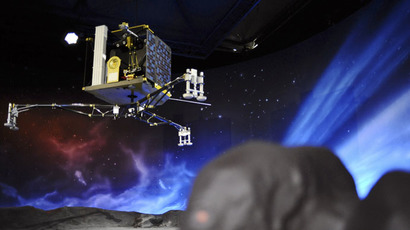Green comet Lovejoy lights New Year's skies (VIDEO)

The New Year’s first celestial object to light up the skies in the Northern hemisphere is Lovejoy comet, already visible to the naked eye and expected to get even brighter over the next week.
The comet C/2014 Q2, named after an amateur Australian astronomer Terry Lovejoy, is flying our way from the edge of the solar system. The comet discovered back in August has brightened to 5 magnitude late December and will be visible high in the dark winter sky through January.
On January 7 it will pass at its closest, about 70 million kilometers from Earth. Although visible to unaided eye, spotting it in suburban light pollution would likely require at least a pair of binoculars.
"Comet Lovejoy: "Gerald Rhemann took this picture on Dec. 21st [2014] using a remotely-operated telescope in Namib... pic.twitter.com/L8mJLUU5tr
— Stephen Johnston (@GLStephen) December 31, 2014
To a naked eye the comet will appear grey, but in reality the celestial body produces a green glow due to ionization by the Sun. Photographers are expecting to take breath-taking pictures as the Lovejoy comet passes near the Orion constellation, as well as Taurus, Pleiades and the Aries.
Comet #Lovejoy Q2 is now naked-eye visible at mag 5, passing south of the constellation Orion. http://t.co/iQ3jRq0E1Fpic.twitter.com/WnHjVcmFCR
— Epic Cosmos (@EpicCosmos) December 29, 2014
Lovejoy comet initially had an extremely long orbital period of over 10,000 years, but it was shortened by gravitational effects. So the next time Lovejoy returns will be in just around 8,000 years.
Comet (C/2014 Q2) Lovejoy & M79 from the Quantock Hills, in Somerset, last night. Comet was ~12˚ above the horizon. pic.twitter.com/NT53o2J5MG
— Will Gater (@willgater) December 29, 2014













